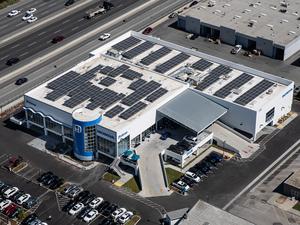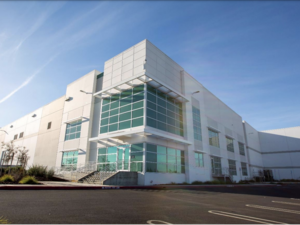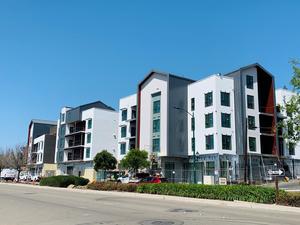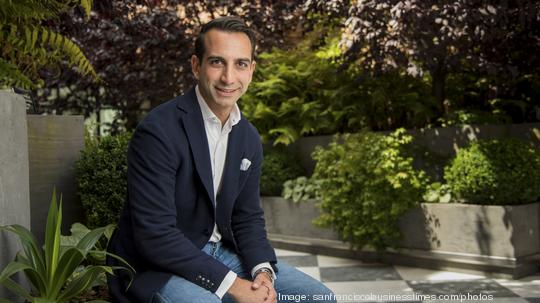
Sometimes it's better to do less. There's plenty of room for disruption in the real estate industry, but the partners at Presidio Bay Ventures say some startups in the industry are doing too much.
K. Cyrus Sanandaji and Kabir Seth founded Presidio Bay as a real estate development firm in 2012, and have also been investing in startups for more than a decade. They were early investors in smart lock and building management company Latch (its stock has cratered more than 90% since its IPO, trading below $1 as of Monday) and failed co-living startup Starcity. They also consider the firm to be a product incubator and consults with startups — one of their former clients was WeLive, Adam Neumann's failed co-living extension of WeWork.
While Andreessen Horowitz is betting $350 million on Neumann's new housing startup, Flow, Sanandaji and Seth believe the proptech companies that ultimately succeed will be the ones that are narrowly focused on building products that concretely serve the construction and real estate industries.
I spoke with them about their strategy, why they got involved with WeLive in its early days and whether co-living is a good investment for venture capital firms.
How would you describe Presidio Bay’s strategy and evolution?
Cyrus: We're doing acquisitions, we're designing, engineering, building, operating, dealing with investor relations. We really have our hands involved in every facet of the real estate industry, and by extension, the architecture, engineering construction world, as well. We realized that a lot of the products, a lot of the services, that existed weren’t quite at the level that we wanted them to be, or weren't satisfied with the status quo. So very early on in the history of the firm, we would come across entrepreneurs who had great ideas — well before “proptech” existed — and ended up getting us involved in venture investing.
Since then, we've been a little more purposeful in how we've engaged with founders and entrepreneurs. We help them to really develop their MVPs, come up with a product and help them deploy the product within our portfolio and actually test the product at scale before they burn a lot of money, or raise a lot of money and lose their shares. Once you really have true product market fit, and we've tested and you've gotten feedback and proved it, then go out for either seed or series A financing.
Would you consider Presidio Bay to be more like an accelerator?
Cyrus: I don't know that we would necessarily classify what we do, or pigeonhole what we do. We've invested in later rounds, as well. But we like to think of our portfolio as more of a lab or an accelerator for products, not necessarily companies. And in the sense that your true accelerator or incubator or even lab is really working to build the business, we're really there helping kind of to build the product and improve the product. And then help with initial introductions both on the equity side, but also on the sales side, as well. Also deployment and adoption, but we’re opportunistic in that sense. A little bit of all.
What sorts of Prop tech trends are you seeing right now?
Cyrus: I think there was a lot of misplaced optimism around tech as a silver bullet to solve some rather complex issues that don't have a singular focal point or pressure point that you can press that then resolves the problem. Construction as a whole, more so in the developed world, is seeing a huge labor issue. And we're not talking about, post Covid, people moving away from California or high expense areas, but there's just a lack of people entering the skilled trades and pursuing that as a career path relative to the demand that we have to keep up with the construction. There's a ton of companies and venture money that flowed into that space at a variety of levels, all the way as ambitious as Katerra, for example, trying to be the full turnkey automated prefab solution.
And then you have it all the way down to something like Canvas, who was just like a robotics company that's focused on drywall. We met with them and they're super sharp people, a ton of brainpower, but a complete lack of understanding of how the general contracting and subcontracting world works. And, again, had this misplaced optimism: we can build a subcontracting business that does drywall better than all the established drywall companies in the area, we can beat them at what they do, we can do it for cheaper because machines are doing it, we've got this great pilot that we're doing with XYZ GC, and aren't we the best?
Great, but not only are you trying to solve a tech problem, but you're also trying to build a business that's competing with the businesses that have been around for 100-plus years, and who dominate the market. And not to mention, there's a human side, as well. Couldn't you use the same technology and actually help address the labor shortage and sort of stretch any one individual’s 40 to 60 hours a week into more productivity, and become a productivity tool as opposed to a competitor as a business? Same thing with Katerra. They try to replace general contractors, as opposed to lending their technology to enhance and let general contractors who are experts at this do their job better.
Robots are not gonna replace all humans. Not in 2022. And so we have to start addressing this problem in more practical terms, in more bite-sized ways. And that runs contrary to a lot of venture capital, which is to completely disrupt the world and make the world a better place. It's very exaggerated in terms of the effect you want to have.
As a result of that, you're seeing a lot of companies, even companies that we've invested in like Latch, are just getting crushed. Unfortunately, they’re being mismanaged. And it's because of this perception of, you came up with a fantastic product, you were one of the first movers, you had a great form factor, you integrated a lot of really great functions, but you missed the mark. You can't be amazing at every single piece of hardware and device that would otherwise control the built environment and users transferred in the built environment.
You built an amazing product that opens doors, focus on that and become the winner in that space, don't suddenly try to compete with every intercom manufacturer and designer, and every security camera designer manufacturer and every alarm designer manufacturer, and now the thermostats. They insisted on everything being native to their product, and they're failing as a result.
So you don't install Latch hardware in your new projects anymore?
Cyrus: We don't. We've switched over because it doesn't speak to any other device, and they refuse to open up the back end. Apple home exists, Google Home exists. There's a bunch of providers at the residential level who have tried to create a controlled experience. Latch refused to integrate with any other devices. It was just impractical.
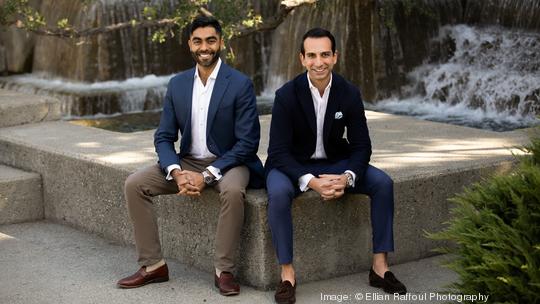
What would you consider to be the defining qualities that separate out the successful prop tech companies from the ones that ultimately fail?
Cyrus: A recognition of the how the ecosystem actually works. A lot of successful entrepreneurs have either come from within the industry or have spent a lot of time understanding the industry and not reducing down the problem to such a basic level that it sort of misses the entirety of the nuances. So the solution isn't a real solution and the problem isn't even a real problem.
Kabir: Point solutions are better than trying to come up with a panacea. Don’t try and reinvent the entire construction supply chain. Focus on a point solution that can provide value at scale and from there can spread into adjacent products or verticals.
We have examples of co-living failures like Starcity and WeLive but Adam Newman got $350 million from Andreessen Horowitz for Flow. Should venture capitalists invest in co-living/communal housing or stay out of it?
Cyrus: I won't speak to sort of what Andreessen’s motivation was. I have no idea. It doesn't make any sense to me, unless you know something about their business plan or they know something about the business plan that differentiates this approach. If the expectation is that you're going to solve the housing crisis, and you're gonna address the affordability crisis around housing, it fundamentally comes down to, yes, I encourage everyone to invest in housing, as much as we can, but don't be fooled to think that by virtue of being a venture capitalist, or investing in a tech founder or an entrepreneur who have a tech solution, that you're somehow going to be able to do this at an exponential clip faster or better than the rest of the market.
You're not going to overcome regulatory issues with tech. You're not going to fight the irony of NIMBYism, like Andreessen himself in Atherton. Tech is not going to change neighbor sentiment or community sentiment if there's an anti-development sentiment. It's still slow. And don't fool yourself to think that you're going to somehow hit outsize venture returns because you think you're gonna go build more apartments.
What attracted the firm to WeLive as an advisor before it went under? And would Presidio Bay Ventures ever consider investing in a company like Starcity or WeLive or Flow?
Kabir: We consulted them because at the time, the concept of WeLive was theoretical, and they brought on an individual whose whole goal was to create software tools to increase the supply of housing, particularly small and medium scale lot developments. Which is consistent with our view of the world. If you can make tools that can solve point solution problems, like making it easier for homeowners and landowners to understand the highest and best use of their property, and then connecting them with vendors.
That's what they were trying to do and that's what we were brought on to help them try to understand from the perspective of the development process. What needs to go into a theoretical software product that could be used by the masses to increase the production of housing? That's really what we were consulting on, in addition to the WeLive structure, which was how can they partner with developers on traditional multifamily buildings to create financial structures and partnership structures that made sense for both parties that could allow them to actually develop WeLive products at scale in partnership with developers like ourselves.
Would Presidio Bay ever consult for or invest in another proptech company that is trying to build some iteration co-living?
Kabir: If it's the same business model, probably not.
Cyrus: If you're focused on a specific problem, that’s a real problem, we want to definitely be a part of that solution and help you create a product around that solution that is a scalable business and is something that can actually benefit the entire industry from a high-density housing perspective. If it's simply a tech company trying to replicate it or become a development firm? We're a tech enabled development firm. We've already done that. And what we're really interested in is figuring out how to continue to push the envelope for how we operate and how the industry operates to benefit the delivery of housing and the overall cost.
The Deets
K. Cyrus Sanandaji
- Age: 37
- Residence: San Francisco
- Hobbies: I have a toddler at home, but also working out, running, kite surfing.
- What are you reading? Mostly the news. Also audio books. Malcolm Gladwell’s “The Bomber Mafia” is at the top of my list.
- What are you watching? “The Old Man”
- Education: UC San Diego and University of Oxford. Political economies, politics and economics.
- First investment: The house we ended up living in during college.
- Most proud of: The company that we’ve built.
Kabir Seth
- Age: 34
- Residence: San Francisco
- Hobbies: My family, golfing, working out, reading.
- What are you reading? “Why We Sleep” by Matthew Walker and “The Last White Man” by Mohsin Hamid
- What are you watching? “Peaky Blinders”
- Education: UC Berkeley. Economics and mathematics.
- First investment: Probably a share of Google or Apple.
- Most proud of: Everything from the company to the developments we’ve built. Our scholarship program.

